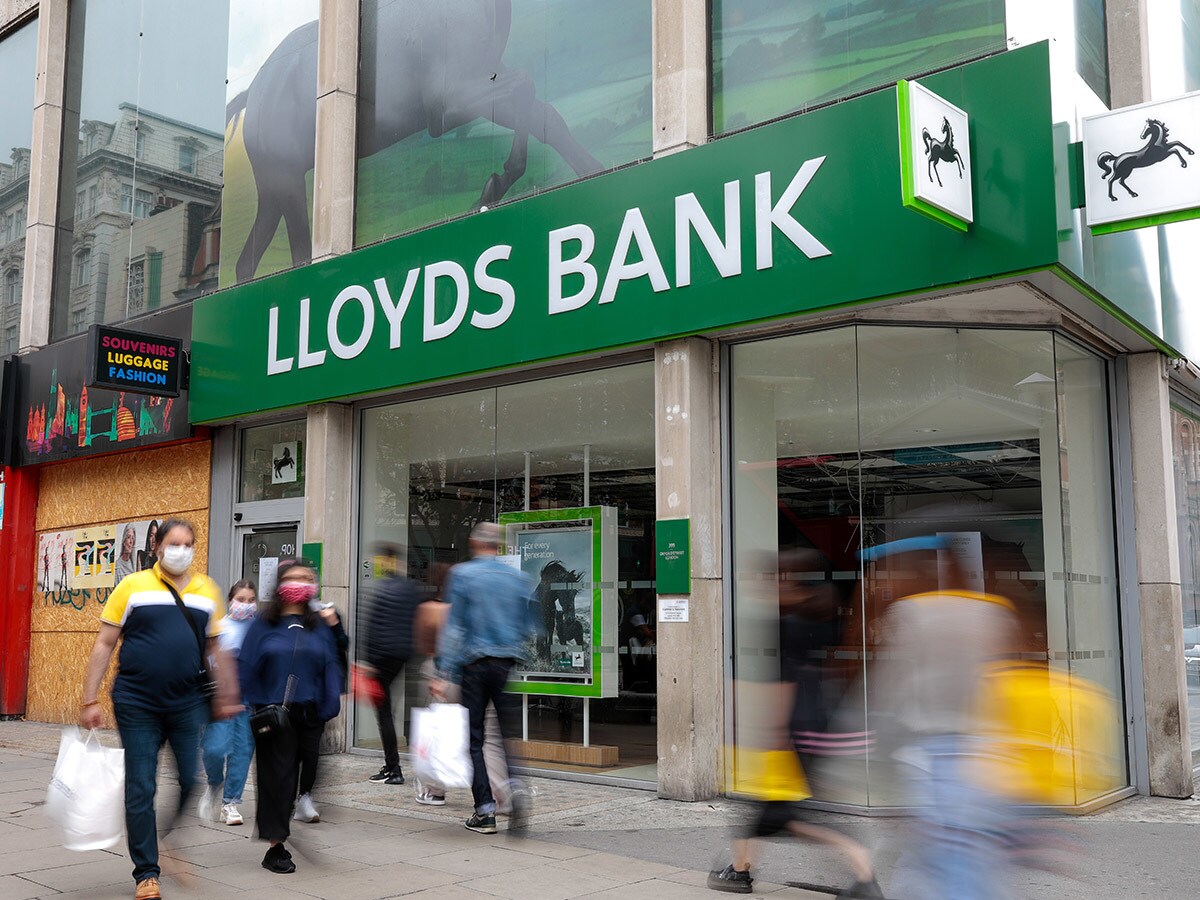Lloyds’ [LLOY] share price had been trading in a tight range since mid-March, but last week’s half-year results saw it plummet. The results underscored the impact of coronavirus on the bank, as well as revealing the state of the wider UK economy.
In the space of an hour on 30 July, Lloyds’ share price saw almost 8% wiped off its value. At one point the stock touched 25p, having started the day at 27p. By the closing bell, Lloyds' share price had managed to recoup some losses to close at 26.21p, but it had certainly been a turbulent day’s trading.
While Lloyds’ current share price could represent a bargain for some traders, clearly there are risks attached. So, where next for Lloyds’ share price?
Why did the results hit Lloyds’ share price?
Lloyds’ share price took a hammering as the bank reported a £676m pre-tax loss — a sharp decline from the £1.3bn profit that Lloyds delivered in the same period last year. Revenues came in at £3.5bn, a hefty 21% drop from last year.
£676million
Lloyds' pre-tax loss
Lloyds set aside a further £2.4bn to cover bad loans in the wake of the coronavirus, bringing the total earmarked to £3.8bn. This provision comes as banks brace themselves for a rise in unemployment in October which will likely lead to mortgage defaults.
In its own forecasts for the UK economy, Lloyds now expects unemployment to hit 9% by the end of the year. This is more severe than the bank's own worst-case scenario last quarter. The new worst-case prediction puts unemployment at 11.5% by 2021.
“The outlook has clearly become more challenging since our first-quarter results, with the economic impact of lockdown much larger than expected at that time,” said the bank’s chief executive, António Horta-Osório.
“The outlook has clearly become more challenging since our first-quarter results, with the economic impact of lockdown much larger than expected at that time” - Lloyds' CEO António Horta-Osório
Is Lloyds’ share price worth the risk?
The starkness of these numbers suggests that the much hoped for short, sharp recovery is more of a pipe dream than an economic reality. However, these results could also represent the worst point for Lloyds. The bank's full-year impairment forecasts remain unchanged, although in such economic conditions it shouldn't come as too much of a surprise if these are missed.
“While Q2 represented an awful set of results, we think this could be a nadir in terms of quarterly profitability, with economic activity starting to improve and significant forward-looking provisions already set aside,” the Financial Times quoted Gary Greenwood, analyst at Shore Capital, as saying.
“While Q2 represented an awful set of results, we think this could be a nadir in terms of quarterly profitability, with economic activity starting to improve and significant forward-looking provisions already set aside” - Gary Greenwood, analyst at Shore Capital
Lloyds is also backed by analysts. UBS and Morgan Stanley recently bumped their price targets on the stock to 45p. Hitting this would see a 71.17% gain on the current share price through 31 July’s close. Joining them was Credit Suisse with a 40p target — a 52.15% upside on Lloyds’ share price as of 31 July’s close.
Where next?
Next year will see a new face in the CEO chair as Horta-Osório leaves Threadneedle Street. Whoever takes the helm will no doubt want to impress their own strategy on the bank. If this change can reduce its myopic focus on the UK retail market, Lloyds' share price could stand to gain.
For some investors, now could be the time to sell Lloyds and look elsewhere. For others, Lloyds’ share price is worth the risk, even if that means sticking with the stock through some truly turbulent times.
| Market Cap | £19.481bn |
| PE ratio (TTM) | 68.86 |
| EPS (TTM) | 0.40 |
| Quarterly Revenue Growth (YoY) | -69.5% |
Lloyds share price vitals, Yahoo Finance, 3 August 2020
Disclaimer Past performance is not a reliable indicator of future results.
CMC Markets is an execution-only service provider. The material (whether or not it states any opinions) is for general information purposes only, and does not take into account your personal circumstances or objectives. Nothing in this material is (or should be considered to be) financial, investment or other advice on which reliance should be placed. No opinion given in the material constitutes a recommendation by CMC Markets or the author that any particular investment, security, transaction or investment strategy is suitable for any specific person.
The material has not been prepared in accordance with legal requirements designed to promote the independence of investment research. Although we are not specifically prevented from dealing before providing this material, we do not seek to take advantage of the material prior to its dissemination.
CMC Markets does not endorse or offer opinion on the trading strategies used by the author. Their trading strategies do not guarantee any return and CMC Markets shall not be held responsible for any loss that you may incur, either directly or indirectly, arising from any investment based on any information contained herein.
*Tax treatment depends on individual circumstances and can change or may differ in a jurisdiction other than the UK.
Continue reading for FREE
- Includes free newsletter updates, unsubscribe anytime. Privacy policy





